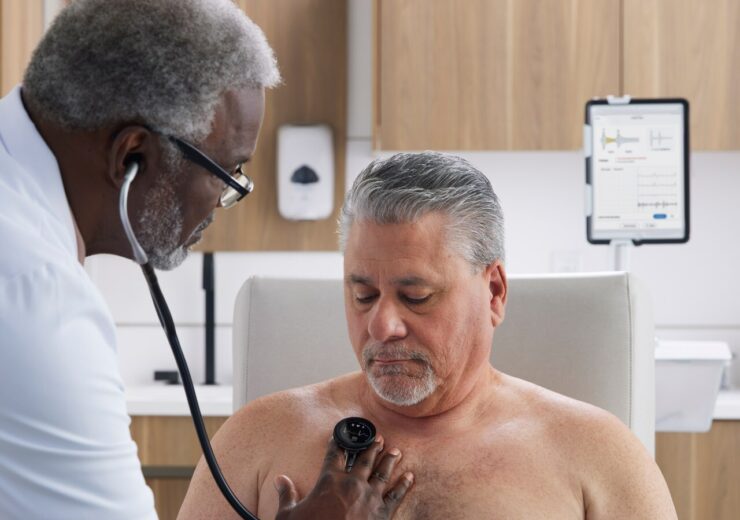The AI-based platform detected structural murmurs related to the valvular heart disease fast and accurately and improved the detection sensitivity of VHD associated with a murmur by over two times

SENSORA platform features a digital stethoscope and AI detection algorithm to identify and monitor heart and lung diseases. (Credit: PR Newswire/Eko Health)
Eko Health has published new real-world clinical data demonstrating that its artificial intelligence (AI)-driven SENSORA Platform has significantly improved heart disease detection rate in primary care.
The SENSORA platform features a digital stethoscope and a US Food and Drug Administration (FDA)-cleared AI detection algorithm to identify and monitor heart and lung diseases.
According to the data, the platform detected structural murmurs related to valvular heart disease (VHD), quickly and accurately.
The study assessed the performance of an Eko digital stethoscope in combination with the company’s AI-based structural murmur detection algorithm against an analog stethoscope with auscultation in the primary care setting.
Both combinations were used to identify previously undiagnosed VHD.
As per the results, the AI approach improved the detection sensitivity of VHD associated with a murmur by over two times.
In contrast to the traditional method, which achieved 41.2% sensitivity and 95.5% specificity, the AI method yielded results of 94.1% sensitivity and 84.5% specificity.
Overall, the findings showed that the conventional approach consistently under-detects, which results in a lower sensitivity when disease is present and a higher specificity when it is not.
Furthermore, the standard method revealed eight previously undiagnosed patients while the AI method identified 22 previously undiagnosed patients with mild or severe VHD.
Eko Health said that these findings suggest that its AI-enabled technology in primary care can boost the identification of VHD at an earlier stage, enable appropriate patient care, and enhance outcomes.
Eko Health co-founder and CEO Connor Landgraf said: “These results mark a significant step forward in utilising AI-powered sensors for upstream cardiovascular disease detection.
“With over 40 clinical validation and real-world studies initiated, we pride ourselves in developing clinically useful tools that assist clinicians with giving their patients the best care possible.”
The study group’s sample size was limited to 369 patients and further enrollment is still going on.
The digital health company plans to collect up to 12 months of patient follow-up data to assess clinical outcomes.
